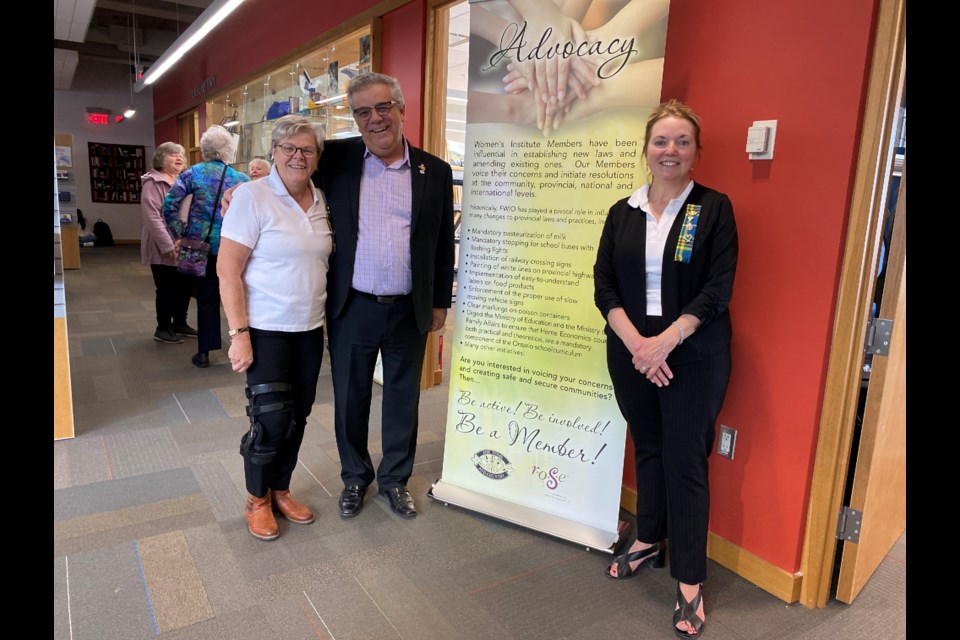The two local branches of the Federated Women’s Institutes of Canada (FWIC) held a special event at the Bradford West Gwillimbury Public Library on Wednesday to raise awareness of the long-standing community service organization.
It was an opportunity to learn more about its past and current work through a slide presentation, and the last day to view a display at the library that was in place since Women’s Institute Day on Feb. 17.
Mayor James Leduc and councillors Cheraldean Duhaney and Jonathan Scott were among those who came to acknowledge the Women’s Institute’s (WI) contributions.
“The Women’s Institute is fantastic in what it does in our community and others,” said Leduc. “It’s been around for many, many years. It is history. It is culture. It’s everything we require to teach our young people about how to get involved in the community and how to be a contributing member of the community. They are everywhere. When we turn the corner, they are there. They are very supportive of all sorts of community initiatives. I just love them.”
Some of those community initiatives include support for the Helping Hand Food Bank, CONTACT Community Services, LOFT Community Services, the South Simcoe Arts Council Music Festival, and the Alliston community gardens. They also donate bears, books and blankets to South Simcoe Police Service initiatives and participate in the Bra Bank.
The Bond Head and Tec-We-Gwill WI branches work together on many initiatives that include education, advocacy, and community events such as special speakers, community lunches and talent shows.
The WI, which is now an international organization, began in Ontario in 1897 in Saltfleet (now Stoney Creek). The FWIC website states, “Erland and Janet Lee invited a group of women to hear Adelaide Hoodless speak on the importance of women engaging in formal domestic education and organizing a unified voice to advocate in the areas of education, family health and community service to improve the lives of their families, the families in their communities, and families across Canada.”
Longtime member Gladys Fieldhouse said being in the WI is a good way to meet people. The monthly programs offer a range of opportunities, from speakers on various subjects to learning a craft or how to do preserves. She said a group is an effective way to get a message across.
“It’s not the same if you are only one person in an advocacy situation. A group is more powerful,” she said.
Mandatory pasteurization of milk was the first result of advocacy as directed by Hoodless, who had lost a child due to disease caused by unpasteurized milk. The list of the WI’s influence on Ontario laws is long and includes installation of railway crossings, clear markings on containers that have poisonous contents, and implementation of easy-to-understand labels on food products.
Besides advocacy, the WI is passionate about recording history in what is called Tweedsmuir Community History Books. Since the beginning, the branches have recorded history of the branches, early settlers of the area, farm practices and individual farms, social institutions, and early industries.
The branch in Bond Head was founded in 1902, and the Tec-We-Gwill branch was founded in 1947. The current presidents are Liz Moore and Donna Jebb, respectively.
“We work as collaboratively as we can," Moore said. "It’s not about a branch; it’s about being a Women’s Institute member. WI is about women sharing and inclusivity.”
Anyone interested is welcome to attend a meeting at the Tec-We-Gwill Hall in Newton Robinson. Meetings take place on the fourth Monday of each month. For more information, email [email protected].
Rosaleen Egan is a freelance journalist, storyteller, and playwright. She blogs on her website: rosiewrites.com.



